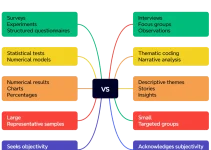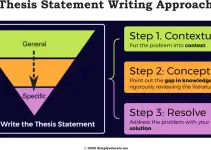Are you in that state where you need to formulate research questions as part of your thesis writing undertaking? Or are you just starting to engage in research but find difficulty identifying research ideas to work on? The following article will be able to help you. Here are ten tips to generate your research topic and get you going.
After you have gone through and finished your college’s academic requirements, do you find difficulty in coming up with your research topic? Or probably you are a budding researcher looking for research topics that strike your interest? Don’t despair. You are one of the thousands of new researchers who have experienced the same thing during the last leg of their venture to the research world.
If you are a college student, your classmates might ask you if you have already come up with your statement of the problem, and you would say that’s your problem. However, this sentiment is not without solutions, and one of the best actions to take, of course, is you should do something about it. Quit complaining, read, and apply the ten steps below to generate your research topic.
10 Tips on How to Generate Your Research Topic
1. Review your notes in your major subjects.
Review the topics you have discussed during your classes in the major subjects and ask yourself: “Which of these topics interest me?” List down three to five major topics and choose the one that appeals to you. Type that topic in a search box (Bing, Yahoo, or Google) and determine if there are scientific papers written about it.
For example, when I type the words “camouflage + findings,” I found a newly published report on quail camouflage in eScience News. It says quails know their eggs’ patterns and how to camouflage their eggs in the specific substrate they will lay those eggs. That’s an exciting finding you might want to test in other animals as your research topic.
2. Ask your professor if he needs a research assistant.
Some professors are researching as part of their professional advancement. They may be needing a research assistant to help them with their research. Volunteer and learn while doing the research. In doing so, you will get some research topics to work on. It is also possible that your study may get funding from the research project of your professor.
3. Brainstorm with classmates and friends.
Engage the brains of other people. Brainstorm on issues along your field. For more details on how this is done, please read my previous post on brainstorming to generate your research topic in no time.
4. Read scientific literature.
Find out what topics are being published along your area of specialization. You may log on to a free, online resource such as the Directory of Open Access Journals or www.doaj.org. Type your keyword, and it will return research topics that may interest you.
5. Visit the workplace of those who graduated in your field.
You can get some ideas while exploring the workplace of those who have graduated in your field of specialization. For this reason, having senior students as your friends or associates in a student organization can help a lot in generating your research topic.
6. Join research groups.
If you are still in your junior years, you may join graduate students while conducting their research. This will enable you to see some areas which have not been explored. Questions may also arise during the research process that may bring you to develop your research topic.
7. Visit marginalized communities.
One of the major purposes of research is to uplift the living condition of marginalized people. Visit communities and see how you can help resolve their problems through research. This approach is what we call immersion. There are many unresolved issues and concerns that you can write down as your research topic.
8. Find a need.
This tip corresponds with #7. But you can do this at home by recalling what you need in your household or your neighbors. What can you do to fulfill that need? List anything that comes to mind.
9. Construct a problem tree.
Try to explore the root causes of a problem by constructing a problem tree. A problem tree is similar to a mind map where you list down a critical issue, find out its causes and outcomes. If there are unanswered or blank areas that need further study, note these down and use them as your research focus.
With mind mapping tools like MindMup, it is now easy to generate your research topic. A software application like this is excellent in mapping out the ideas in your head in a matter of minutes.
I curated videos about mind mapping using MindMup, a free mind mapping tool. I picked the one below, given his energy to explain how MindMup works. Check it out.
10. Subscribe to this blog.
Well, that’s easy to understand. As I write topics here on research, something worth pursuing might crop up in your mind, thus prompt you to research that topic.
Generate a research topic that rocks!
© 2013 March 19 P. A. Regoniel
Updated: 23 November 2020
[cite]




helpful
In selecting a topic researcher should take a number of factors in to account:
1.Interest.
2.Relevance.
3.Originality of the topic.
4.Workability.
5.Feasibility.
6.scope of the topic.
Thanks for the added input Buhari.